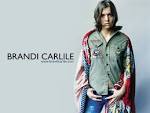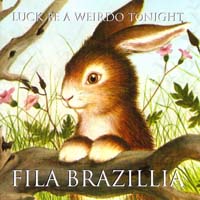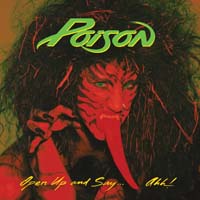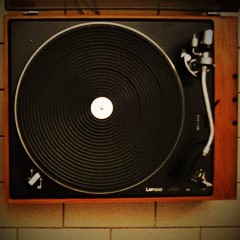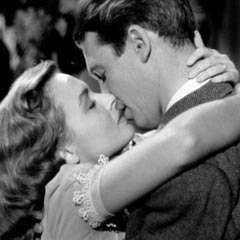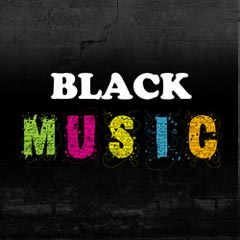2024-02-18
The Truth about Cab Calloway's Singing Voice
If you like jazz, chances are pretty good that you know who Cab Calloway is. He was a renowned figure and musician in the 1930s swing era, often referred to as The Hi De Ho Man due to his unique way of talking during performances. However, when it comes down to his musical stylings, we can all agree: there's no two ways about it - he wasn't the greatest singer in the world! In this blog post, we'll take an irreverent look at Cab Calloway's music career and why his singing voice simply isn't up-to-par! So get ready for some hilarious (and perhaps cringe worthy) fun while preparing for a completely different sound than what you might expect from the legend himself...
If you're a jazz fan, then you're likely familiar with Cab Calloway, the Hi De Ho Man of the 1930s swing era. His lively performances and unique way of talking made him a beloved figure in the music world. However, for many of us, when we hear Cab Calloway sing, we can't help but wonder: what's going on with his voice? In this blog, we'll delve into the truth about Cab Calloway's singing voice and why it simply wasn't up to par.
Firstly, let's take a brief look at Cab Calloway's career. Born in 1907 in Rochester, New York, Calloway started off as a drummer before finding his true calling as a bandleader and singer. He exploded onto the scene in the late 1920s with his band The Cotton Club Orchestra, performing regularly at the legendary Cotton Club in Harlem. Calloway's energetic performances and signature Hi De Ho catchphrase soon made him a household name in the world of jazz.
However, despite his popularity, let's face it, Cab Calloway wasn't the greatest singer in the world. His voice lacked the smoothness and clarity of other jazz greats like Billie Holiday or Ella Fitzgerald. In fact, his singing style could be downright grating at times. But to his credit, Calloway made the most of what he had, embracing his unique sound and infusing it with his larger-than-life personality.
So, why did Calloway's voice leave something to be desired? One theory is that his throat problems and chronic laryngitis may have played a role. Another factor could be the style of jazz that Calloway was known for. The swing era emphasized the rhythm and overall sound rather than the individual vocals, giving Calloway more leeway to experiment with his unique style.
But despite his shortcomings as a singer, there's no denying that Calloway was a talented musician and bandleader. He wrote many of his own songs, including classics like Minnie the Moocher and St. James Infirmary, and was known for his impeccable sense of timing and showmanship. His band was also top-notch, featuring talented musicians like Dizzy Gillespie and Chu Berry.
In the end, while Cab Calloway may not have been the most technically skilled singer out there, he made up for it with his boundless energy, creativity, and personality. His performances were always entertaining, and his contributions to the world of jazz cannot be overstated. When you listen to Cab Calloway's music, we encourage you to embrace his unique style and appreciate it for what it is: a product of a bygone era and a true icon of jazz. So go ahead, put on some Cab Calloway and let the good times roll!
If you're a jazz fan, then you're likely familiar with Cab Calloway, the Hi De Ho Man of the 1930s swing era. His lively performances and unique way of talking made him a beloved figure in the music world. However, for many of us, when we hear Cab Calloway sing, we can't help but wonder: what's going on with his voice? In this blog, we'll delve into the truth about Cab Calloway's singing voice and why it simply wasn't up to par.
Firstly, let's take a brief look at Cab Calloway's career. Born in 1907 in Rochester, New York, Calloway started off as a drummer before finding his true calling as a bandleader and singer. He exploded onto the scene in the late 1920s with his band The Cotton Club Orchestra, performing regularly at the legendary Cotton Club in Harlem. Calloway's energetic performances and signature Hi De Ho catchphrase soon made him a household name in the world of jazz.
However, despite his popularity, let's face it, Cab Calloway wasn't the greatest singer in the world. His voice lacked the smoothness and clarity of other jazz greats like Billie Holiday or Ella Fitzgerald. In fact, his singing style could be downright grating at times. But to his credit, Calloway made the most of what he had, embracing his unique sound and infusing it with his larger-than-life personality.
So, why did Calloway's voice leave something to be desired? One theory is that his throat problems and chronic laryngitis may have played a role. Another factor could be the style of jazz that Calloway was known for. The swing era emphasized the rhythm and overall sound rather than the individual vocals, giving Calloway more leeway to experiment with his unique style.
But despite his shortcomings as a singer, there's no denying that Calloway was a talented musician and bandleader. He wrote many of his own songs, including classics like Minnie the Moocher and St. James Infirmary, and was known for his impeccable sense of timing and showmanship. His band was also top-notch, featuring talented musicians like Dizzy Gillespie and Chu Berry.
In the end, while Cab Calloway may not have been the most technically skilled singer out there, he made up for it with his boundless energy, creativity, and personality. His performances were always entertaining, and his contributions to the world of jazz cannot be overstated. When you listen to Cab Calloway's music, we encourage you to embrace his unique style and appreciate it for what it is: a product of a bygone era and a true icon of jazz. So go ahead, put on some Cab Calloway and let the good times roll!
Tag: Cab Calloway, music artist, best songs, artist career
2022-01-01
The Pros and Cons of Being a Brandi Carlile Fan
Since her debut record in 2005, Brandi Carlile has been a force in the music scene. With soul-stirring lyrics and beautiful melodies, she has gained a passionate and diverse fan base around the world...read more
2022-11-01
The Musical Journey of Calvin Harris
Calvin Harris is a name that needs no introduction in the music industry. This talented and creative artist has taken the world by storm with his amazing music...read more
2022-11-01
Fila Brazillia: The Musical Biography of a Pioneer
Music has always been a universal language with the power to unite people from all walks of life. One of the pioneers who revolutionized the world of electronic music is Fila Brazillia...read more
2022-01-01
Mariah Carey: A Critical and Appreciative Look at Her Impact on Music
Mariah Carey has impacted the music industry in an undeniable way, frequently leaving listeners with both new favorites and deep-rooted nostalgia. From her powerhouse vocal abilities to her ear for producing creating top 40 hits, she’s undoubtedly put down roots as one of our beloved musical influencers...read more
2022-11-01
Poison - The Glam Rockers Who Ruled The 80s
If you are a fan of 80s rock music, then you must have heard of Poison. The band was one of the most popular and influential hard rock bands of the 80s, and they are regarded as one of the pioneers of glam rock...read more
SUGGESTED PLAYLISTS

